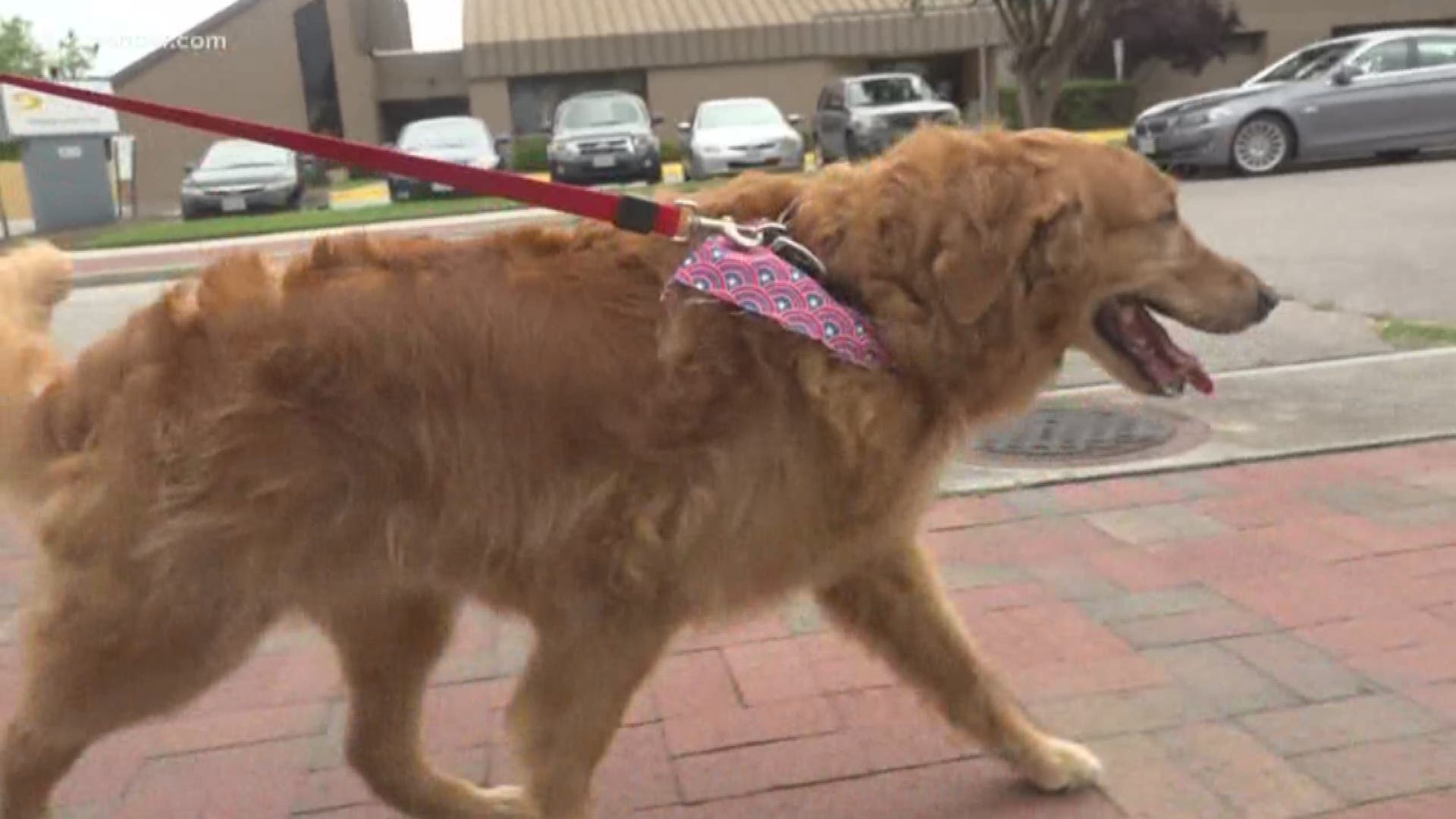June is Alzheimer’s Awareness Month. Of course, this is a devastating disease for humans, so why are we bringing this up in today’s edition of Bentley’s Corner?
Well as Tim Pandajis found out, dogs can get it too!
“Alzheimer’s in dogs is called 'canine cognitive dysfunction,'" explained Dr. Denette Cooke. "It’s similar to human Alzheimer's in that it is an age progression.”
This is mainly an issue with elderly dogs, but Dr. Cooke said she has seen it in a few younger pups as well.
"Twenty-five percent of dogs at the age of 12 have it and 60 percent of dogs at the age of 15 have it so it is very, very common," she said.
So how do you know if your pet might have it?
There are signs you can look out for, according to Dr. Cooke.
“Signs you may look for are confusion, anxiety. They may pace for no reason, they may vocalize for no reason. Certainly, housebreaking ability can decrease," she said.
It may also come down to your dog starting to not recognize you anymore. Interacting with you more, or even less. Becoming needy and having to be by your side constantly can also be a symptom.
Dr. Cooke stressed that this isn’t something that comes on all at once; like in humans, it is a slowly progressing disease that presents over time.
“There are medications that can be helpful but I find its usually most helpful when we do it early on, in the early course," she said. "While there is no test that we run, we will rule out other things by bloodwork, urinalysis, looking to see if everything looks OK and then we will do a checklist that the owner can follow.”
Another way to ward off any symptoms: keep your dog’s brain active by taking them on walks and exposing them to new environments.

